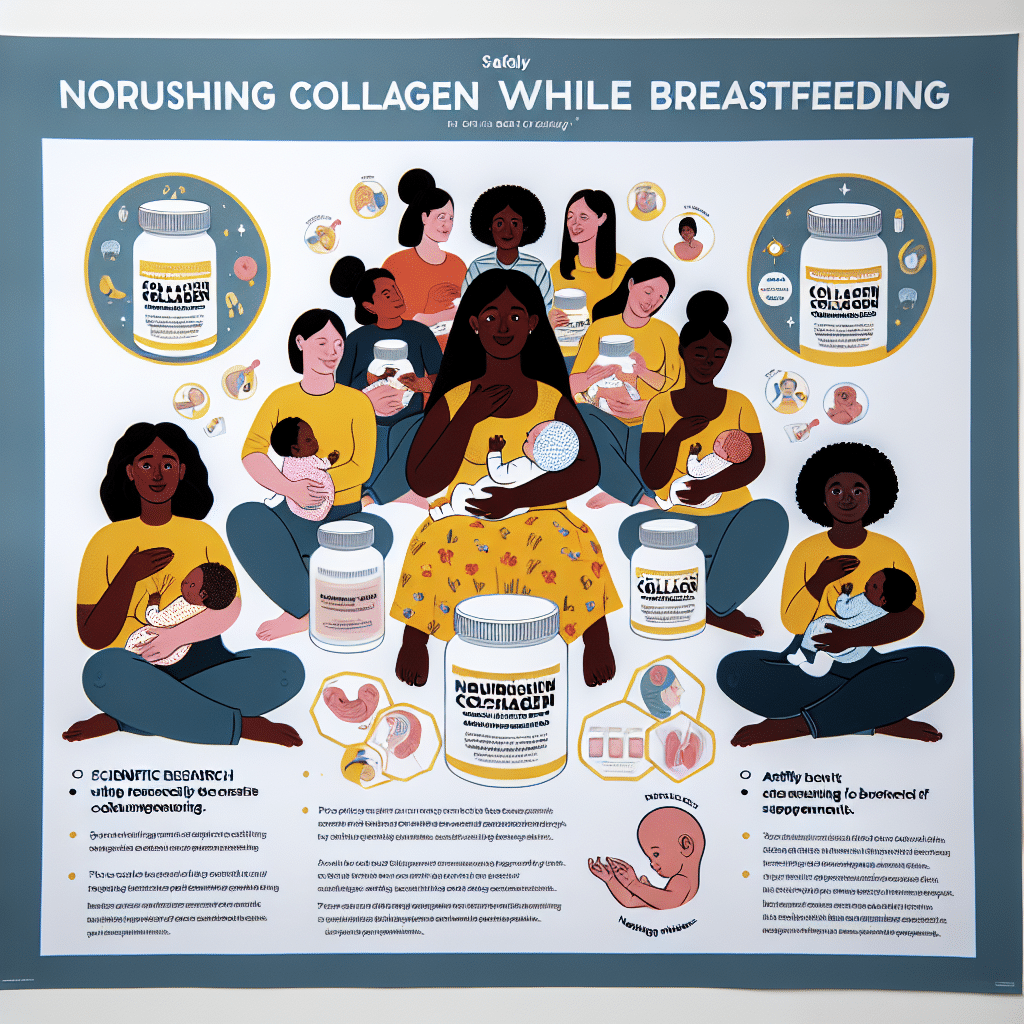Is Collagen Safe While Breastfeeding? Nourishing Mothers
-
Table of Contents
- Collagen Supplementation While Breastfeeding: A Guide for Nourishing Mothers
- Understanding Collagen and Its Role in the Body
- Is Collagen Safe for Breastfeeding Mothers?
- Benefits of Collagen for Breastfeeding Mothers
- Choosing the Right Collagen Supplement
- Recommended Dosage and Usage
- Real-Life Experiences and Case Studies
- Conclusion: Balancing Safety and Nutrition for Mother and Baby
- ETChem: Your Trusted Source for High-Quality Protein Products
Collagen Supplementation While Breastfeeding: A Guide for Nourishing Mothers

For new mothers, the postpartum period is a time of immense change and adjustment. As they navigate the challenges of motherhood, many seek ways to support their health and recovery. Collagen, a protein that plays a crucial role in the structure of our skin, bones, and connective tissues, has gained popularity as a dietary supplement. However, breastfeeding mothers often wonder about the safety and benefits of taking collagen during this delicate time. This article delves into the current understanding of collagen supplementation while breastfeeding, offering insights for mothers looking to nourish themselves and their babies.
Understanding Collagen and Its Role in the Body
Collagen is the most abundant protein in the human body, providing structural support to various tissues. It’s essential for maintaining skin elasticity, joint health, and the integrity of bones and muscles. As we age, our bodies produce less collagen, which can lead to signs of aging such as wrinkles and joint pain. Supplementing with collagen is thought to help counteract these effects and support overall health.
Is Collagen Safe for Breastfeeding Mothers?
The primary concern for breastfeeding mothers is whether the supplements they take are safe for their infants. While there is limited research specifically on collagen supplements during breastfeeding, the available evidence suggests that high-quality collagen supplements are generally safe. Collagen is a protein that is broken down into amino acids during digestion, which are then used by the body as needed. These amino acids are the same ones found in protein-rich foods that are commonly consumed by breastfeeding mothers.
Benefits of Collagen for Breastfeeding Mothers
- Supports Skin Elasticity: Pregnancy and childbirth can stretch and stress the skin. Collagen may help improve skin elasticity and reduce the appearance of stretch marks.
- Promotes Joint Health: The increased weight and hormonal changes during pregnancy can put pressure on joints. Collagen supplementation might aid in joint recovery postpartum.
- Enhances Hair and Nail Growth: Many women experience changes in hair and nail health during and after pregnancy. Collagen could contribute to stronger nails and healthier hair.
Choosing the Right Collagen Supplement
When selecting a collagen supplement while breastfeeding, it’s crucial to choose a high-quality product from a reputable source. Look for supplements that have been third-party tested for contaminants and heavy metals, which could be harmful to both mother and baby. Additionally, consider the source of the collagen—bovine, marine, or chicken—and any dietary restrictions or allergies you may have.
Recommended Dosage and Usage
There is no established recommended daily allowance for collagen, and dosages can vary widely between supplements. It’s important to follow the manufacturer’s instructions and consult with a healthcare provider before starting any new supplement regimen, especially when breastfeeding.
Real-Life Experiences and Case Studies
Anecdotal evidence from breastfeeding mothers who have taken collagen supplements often reports positive outcomes, such as improved skin texture and less joint pain. However, it’s important to remember that individual experiences can vary, and what works for one person may not work for another.
Conclusion: Balancing Safety and Nutrition for Mother and Baby
In conclusion, while there is a need for more research specifically on collagen supplementation during breastfeeding, current evidence suggests that it is likely safe when using high-quality products. The potential benefits for skin, joint, and hair health can be appealing for postpartum mothers. However, it’s essential to consult with a healthcare provider before starting any new supplement to ensure it’s appropriate for your individual health needs and circumstances.
ETChem: Your Trusted Source for High-Quality Protein Products
If you’re considering collagen supplementation while breastfeeding, ETChem offers a range of high-quality protein products that could be a great addition to your postpartum nutrition plan. Their products are rigorously tested to ensure safety and quality, making them a reliable choice for mothers looking to support their health and the health of their babies.
About ETChem:
ETChem, a reputable Chinese Collagen factory manufacturer and supplier, is renowned for producing, stocking, exporting, and delivering the highest quality collagens. They include marine collagen, fish collagen, bovine collagen, chicken collagen, type I collagen, type II collagen and type III collagen etc. Their offerings, characterized by a neutral taste, instant solubility attributes, cater to a diverse range of industries. They serve nutraceutical, pharmaceutical, cosmeceutical, veterinary, as well as food and beverage finished product distributors, traders, and manufacturers across Europe, USA, Canada, Australia, Thailand, Japan, Korea, Brazil, and Chile, among others.
ETChem specialization includes exporting and delivering tailor-made collagen powder and finished collagen nutritional supplements. Their extensive product range covers sectors like Food and Beverage, Sports Nutrition, Weight Management, Dietary Supplements, Health and Wellness Products, ensuring comprehensive solutions to meet all your protein needs.
As a trusted company by leading global food and beverage brands and Fortune 500 companies, ETChem reinforces China’s reputation in the global arena. For more information or to sample their products, please contact them and email karen(at)et-chem.com today.
